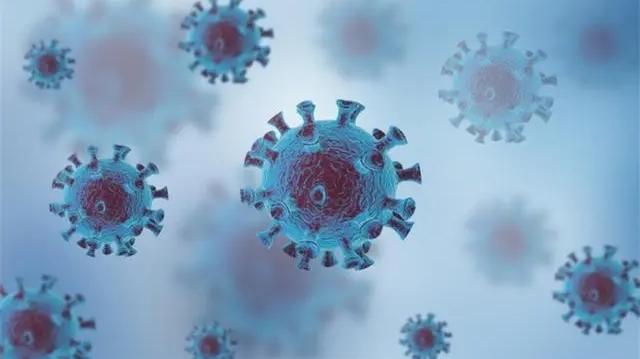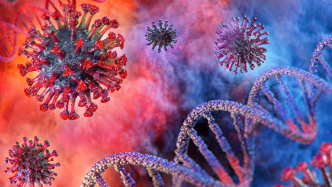

According to the latest issue of "Nature Communications", a new study from the Keck Medical Center of the University of Southern California in the United States shows that a chaperone protein called GRP78 plays a key role in causing the spread of the new coronavirus. The study also showed that blocking the production of GRP78, or inhibiting its activity with a new targeted drug, can greatly reduce the replication of the new coronavirus.
GRP78 is a key cellular chaperone that helps regulate the folding of other cellular proteins. In a 2021 paper, researchers at the Keck Medical Center showed that when the new coronavirus invades, GRP78 is "hijacked" to work with other cell receptors to bring the virus into the cell, where it can then replicate and spread .
This study provides direct evidence that GRP78 is a proviral protein necessary for viral replication.
The team examined human lung epithelial cells infected with COVID-19 and observed that as the viral infection intensified, the infected cells produced higher levels of GRP78. The researchers then used a special messenger RNA tool to suppress the production of the GRP78 protein in human lung epithelial cells in cell culture without interrupting other cellular processes. When these cells were later infected with 2019-nCoV, they produced lower amounts of the viral spike protein and released less virus, demonstrating that GRP78 is necessary and essential for virus replication and production.
To further explore whether targeting GRP78 could treat COVID-19, the researchers tested a recently discovered small molecule drug called HA15 on infected lung cells. The drug, developed to fight cancer cells, specifically binds GRP78 and inhibits its activity.
The study found that, at safe doses, the drug was highly effective in reducing the number and size of SARS-CoV-2 plaques produced in infected cells, with no harmful effects on normal cells. The researchers then tested HA15 in genetically modified mice and found that the drug greatly reduced the SARS-CoV-2 load in the lungs.
The researchers said that these are the basic evidence of principle research, and further research such as clinical trials is needed.


